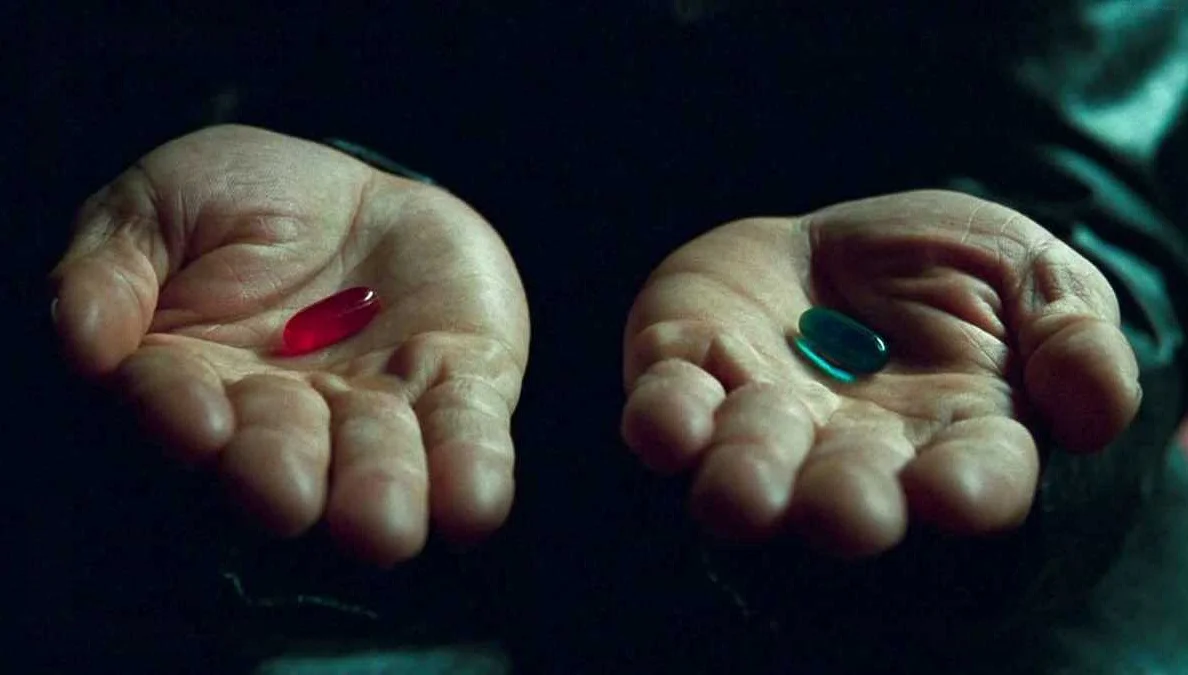3 Reasons Why Loneliness Can Lead Men to Become Incels
Содержимое
Scientists reveal the three key factors that can lead a man to become an incel, highlighting the dangerous and isolating nature of this phenomenon.
Incels, or “involuntary celibates,” have gained attention in recent years due to their extreme ideologies and dangerous actions. While both men and women can identify as incels, the majority of the movement is comprised of men. But what leads some men down this dark path of loneliness, anger, and entitlement?
1. Social Isolation and Rejection: One of the main reasons men can become incels is due to social isolation and rejection. This can stem from a variety of experiences, such as bullying, low self-esteem, or difficulty forming meaningful connections with others. The constant feeling of being unwanted and unattractive can lead some men to adopt toxic beliefs, blaming others for their lack of romantic and sexual success.
2. Media and Online Influence: The rise of online communities and forums has provided a platform for incel ideologies to flourish. These echo chambers often reinforce negative beliefs about women and relationships, further fueling feelings of resentment and anger. The anonymity and validation provided by these online communities can serve as a breeding ground for radicalization, pushing men further into the incel mindset.
3. Mental Health Issues: Many incels struggle with mental health issues, such as depression, anxiety, or personality disorders. These underlying conditions can amplify feelings of loneliness and hopelessness, making it even more difficult for men to form healthy relationships. Without proper support and treatment, these mental health issues can contribute to the development of incel beliefs and behaviors.
It is crucial to address the root causes behind the incel movement and provide support for those who may be vulnerable to its ideologies. By addressing social isolation, promoting healthy relationships, and offering mental health resources, we can work towards preventing individuals from becoming incels and creating a safer society for all.
Social Isolation and Rejection

Social isolation and rejection can play a significant role in why some men become incels. Many individuals who identify as incels often feel socially isolated and disconnected from others. They may struggle to develop and maintain meaningful relationships, both romantic and platonic, which can lead to feelings of loneliness and despair.
These individuals may experience rejection and exclusion from social groups, further exacerbating their sense of isolation. They may feel like outsiders and believe that they do not belong in society. This deepens their feelings of loneliness and can contribute to their identification as incels.
The experience of social isolation and rejection can also impact one’s self-esteem and confidence. Constant rejection and lack of social interaction can lead to feelings of worthlessness and inadequacy. Men who feel rejected by society may blame their physical appearance, personality traits, or other factors for their perceived inability to form connections with others.
Additionally, social media and online communities can perpetuate social isolation for incels. These platforms can provide a space for like-minded individuals to bond over their shared experiences of rejection and loneliness. However, these communities can also reinforce negative beliefs and encourage harmful behaviors.
It is crucial to address and understand the underlying causes of social isolation and rejection in order to prevent individuals from becoming incels. Providing support, promoting empathy and inclusivity, and fostering healthy relationships can help individuals overcome these challenges and find a sense of belonging in society.
Negative Self-Image and Low Self-Esteem

One of the major factors that can lead to men becoming incels is negative self-image and low self-esteem. Many incels suffer from a distorted perception of themselves, often seeing themselves as unattractive, unworthy, or even repulsive. This negative self-image can be a result of various factors, such as past rejections or societal pressures to conform to certain standards of attractiveness.
Low self-esteem often goes hand in hand with negative self-image. Men who have low self-esteem may feel inadequate or inferior, believing that they are not worthy of love or romantic relationships. This can create a vicious cycle, as their low self-esteem may lead to self-sabotaging behaviors or a lack of confidence when interacting with others.
Moreover, negative self-image and low self-esteem can also contribute to feelings of isolation and loneliness. Men who perceive themselves as unattractive or undesirable may struggle to form connections with others, leading to a sense of social alienation. These feelings of loneliness can further reinforce their negative self-image and low self-esteem, creating a toxic cycle that is difficult to break out of.
Addressing negative self-image and low self-esteem is crucial in preventing men from becoming incels. Encouraging healthy self-perception and promoting self-acceptance can help individuals develop confidence and a positive outlook on themselves. Additionally, providing support and resources for mental health and self-esteem improvement can assist men in building healthier relationships and breaking free from the incel mindset.
Online Echo Chambers and Radicalization

One of the contributing factors to the rise of the incel movement is the presence of online echo chambers. These echo chambers are virtual spaces where individuals with similar beliefs and experiences come together to reinforce their beliefs and isolate themselves from opposing viewpoints.
When it comes to incels, online echo chambers can have a dangerous impact. These spaces provide a breeding ground for radicalization, where individuals who feel lonely and rejected can find solace in a community that validates their negative beliefs about women and society.
The echo chambers often serve as an incubator for extremist ideologies and promote the dehumanization of women. Through the constant reinforcement of negative attitudes and the sharing of misogynistic content, individuals can become more radicalized and may even consider violence as a solution to their grievances.
Furthermore, echo chambers also make it difficult for individuals to escape this toxic mindset. With limited exposure to alternative perspectives and a constant stream of reinforcement, it becomes challenging for incels to challenge their own beliefs and consider different viewpoints.
It is crucial to address the issue of online echo chambers and radicalization to prevent the further growth of the incel movement. By promoting open dialogue, encouraging critical thinking, and providing support networks for individuals, we can help break the cycle of radicalization and create a safer online environment for everyone.
Cultural Misconceptions and Unrealistic Expectations

One of the factors that can contribute to the development of incel identity in men is the presence of cultural misconceptions and unrealistic expectations. Society often perpetuates certain ideas about relationships, masculinity, and attractiveness that can lead men to feel inadequate and isolated if they do not meet these expectations.
| One common misconception is the belief that men should always be confident and in control. This societal idea places pressure on men to be assertive, dominant, and successful in all areas of their lives, including their romantic relationships. However, not all men naturally possess these qualities, and it can be incredibly damaging for those who feel that they do not measure up. This can lead to feelings of self-doubt, low self-esteem, and a sense of hopelessness. | Another unrealistic expectation is the emphasis on physical appearance. Society often values certain body types, facial features, and other physical attributes that are deemed attractive. Men who do not fit these standards may feel undesirable and face difficulties in forming romantic relationships. This can create a sense of isolation and contribute to the development of an incel identity. |
| Additionally, cultural narratives often portray romance and relationships as essential components of a fulfilling life. This can create the perception that being in a romantic relationship is the only way to find happiness and validation. Men who are unable to establish romantic connections may internalize the belief that they are inherently flawed or unworthy, further exacerbating feelings of loneliness and despair. | Addressing these cultural misconceptions and unrealistic expectations is crucial to prevent the development of incel identity in men. Promoting a more inclusive definition of masculinity that values emotional vulnerability, diverse body types, and individuality can help men feel more accepted and valued in society. Encouraging healthy relationships that are not solely focused on physical appearance and highlighting the importance of self-love and personal fulfillment can also contribute to reducing the prevalence of incel ideology. |
By recognizing and challenging these societal misconceptions and expectations, we can create a more supportive and inclusive environment for all individuals, reducing the risk of men becoming incels and promoting healthier and happier relationships.
Mental Health Issues and Lack of Support
Mental health issues can be significant contributing factors to a man becoming an incel. Many incels struggle with various mental health conditions, such as depression, anxiety, and social anxiety disorder. These conditions can make it difficult for them to initiate and maintain relationships, leading to feelings of isolation and loneliness.
Unfortunately, there is often a lack of support and resources available for men facing mental health challenges. Society’s traditional expectations for men to be strong and stoic can make it difficult for them to seek help or express their emotions. This lack of support can further exacerbate their mental health issues and contribute to their involuntarily celibate status.
Furthermore, the stigma surrounding mental health can also result in a lack of understanding and empathy from others. Friends, family, and even mental health professionals may not fully grasp the unique struggles that incels face, leading to a sense of isolation and further deepening their feelings of being undesired and unlovable.
It is crucial that society works towards providing a more inclusive and supportive environment for men struggling with mental health issues. Offering accessible and non-judgmental mental health services, promoting open discussions about mental health, and challenging societal expectations can help prevent men from falling into the dangerous mindset of the incel community.